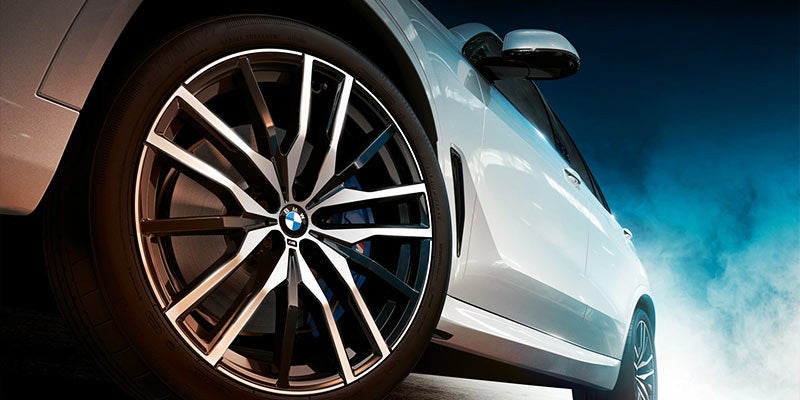
It’s generally recommended that you pop into your BMW dealer to have your brakes dissembled and serviced once every 12 months or 12,000 miles, whichever comes first. That doesn’t necessarily mean you’ll need brake repair or part replacements unless the technician actually detects a problem. But even with a vehicle as finely tuned and robust as a BMW, your brakes will sometimes run into trouble in between routine servicing visits. Here are three clear warning signs to look out for.
You Experience Brake Fade
The braking mechanism of any vehicle can begin to overheat with too much constant use. If you spend hours in stop-and-start traffic, tapping that brake pedal over and over, then your brake pads and rotors might really heat up. The same can happen if you’re driving over mountainous terrain with plenty of long downhill stretches or tight bends in the road.
When your braking system begins to overheat, the necessary friction between brake pad and rotor can diminish. This will feel like a sudden sponginess to the brakes and delayed stopping, also known as brake fade. It’s a scary sensation because you’re no longer as safe on the road if you cannot stop promptly. Pull over, let your brakes cool down, and if the problem persists, get it seen to by a mechanic.
Your Brakes Begin to Squeal
The fastest part of a braking mechanism to wear down is the brake pads, which usually last between 30,000 and 70,000 miles on a BMW, depending on how much you use them. Brake pads consist of two layers: a solid steel base and a high-friction layer on top. This high-friction layer is made of a mixture of metallic materials like steel wool, copper, and wire, all held together by a rock-like resin compound.
When you press down on the pedal, the pads are clamped against the rotor by pistons inside the caliper. This firm friction slows and stops your car. But each time you do so, a little of the pads is shaved away, until one day you’re left with nothing but the steel base. As you near this point, the pads will begin to emit an irritating squealing sound to let you know it’s time for replacements, and sometimes repairs.
Your Pedal or Wheel Begins Vibrating
The second most common part of a braking mechanism to need fixing is the rotor discs. These are the thick discs that the pads clamp to slow the wheel. Rotors are usually made of iron but BMW cars often use carbon-ceramic fiber discs, which are even more durable.
Still, they can sometimes be warped or damaged by grooves when they begin to overheat. Also, the resin of brake pads can occasionally melt under extreme heat, spreading an uneven coat of lumpy resin over the rotor. Either one of these problems will lead to vibrations that you might feel through the steering wheel or the brake pedal. If you notice any vibrations, your rotor will need to be repaired, and most likely replaced.
The Brake-Inspection Process of a BMW Dealer
Beyond checking and topping up your brake fluids, it’s difficult for the average driver to thoroughly inspect their own brakes. An experienced technician needs to have your car raised so they can examine the underside lines and hoses. They must also remove the wheels to inspect the pads, rotors, calipers, and hoses.
For expert, friendly brake service and repair, visit Valley Auto World BMW. We’ve been proud providers of BMW servicing and purchasing solutions to the local drivers of Fayetteville and Fort Bragg since 1964.



![[Facebook]](https://www.valleyautoworldbmw.com/blogs/925/wp-content/plugins/bookmarkify/facebook.png)
![[LinkedIn]](https://www.valleyautoworldbmw.com/blogs/925/wp-content/plugins/bookmarkify/linkedin.png)
![[Twitter]](https://www.valleyautoworldbmw.com/blogs/925/wp-content/plugins/bookmarkify/twitter.png)
![[Yahoo!]](https://www.valleyautoworldbmw.com/blogs/925/wp-content/plugins/bookmarkify/yahoo.png)
![[Email]](https://www.valleyautoworldbmw.com/blogs/925/wp-content/plugins/bookmarkify/email.png)
